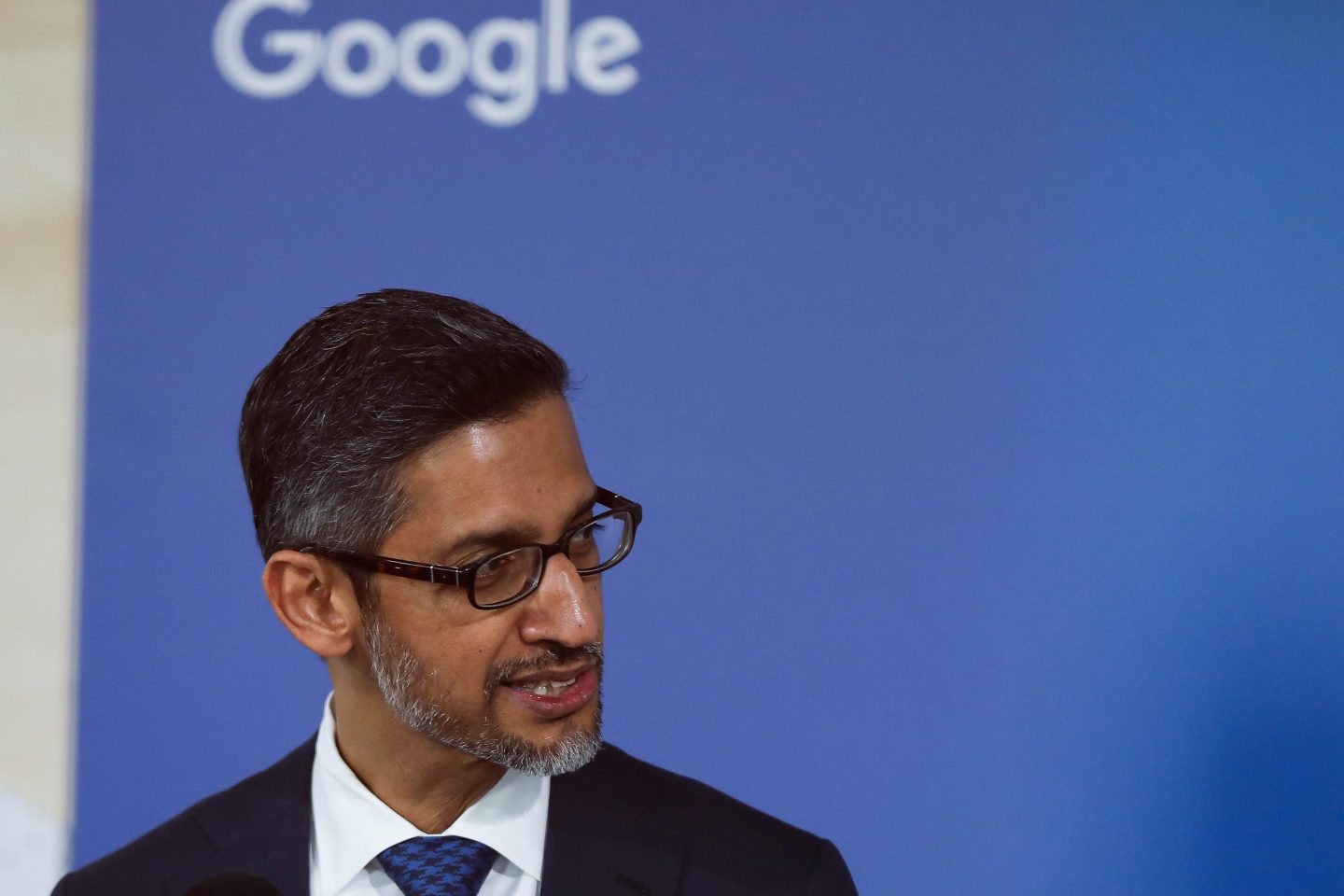Good morning. Lean and mean today, like Cypher’s steak in The Matrix.
Have a great weekend. —Andrew Nusca
Want to send thoughts or suggestions to Fortune Tech? Drop a line here.
Federal judge rules Google is running an illegal ad monopoly

Well, it happened again: Google has been called a law-breaking monopolist by a federal judge.
In August, Google was ruled to have been illegally leveraging its search engine dominance to stifle competition.
On Thursday, U.S. District Judge Leonie Brinkema in Virginia ruled that Google had broken the law in a bid to maintain a monopoly in some online advertising technology.
“Depriving rivals of the ability to compete, this exclusionary conduct substantially harmed Google’s publisher customers, the competitive process, and, ultimately, consumers of information on the open web,” the judge wrote.
The federal government argued that Google had a monopoly over three areas of online advertising: tools used by digital publishers to host ads; tools used by advertisers to buy space; and software that facilitates those deals.
The judge ruled in the government’s favor for the first and third. (She dismissed the second, writing that the government hadn’t proven that it was a defined market.)
The Justice Department had previously asked the court to force Google to sell some pieces of its ad technology business; the ball is now in the U.S. government’s court to propose remedies—something that could lead to a major restructuring of Google. —AN
Netflix earnings defy the souring economy
Netflix shares rose more than 4% in aftermarket trading on Thursday after the entertainment giant’s first-quarter earnings results surpassed Wall Street expectations and the company reiterated its positive business forecasts.
For the quarter, Netflix beat analyst expectations on both revenue and profit. Revenue totaled $10.54 billion compared with estimates of $10.51 billion, while earnings per share of $6.61 blew away analyst estimates of $5.71.
Netflix’s confidence will likely encourage some investors that have been pummeling some stocks amid extreme economic uncertainty ignited by the Trump administration’s escalating trade war with China.
Greg Peters, Netflix’s co-CEO, said on an investor call that the company has been largely unaffected by that economic turmoil: “There is nothing really significant to note.”
Netflix executives argued that the company is benefiting from the tendency for entertainment spending to be less affected during economic downturns.
They also pushed the idea that the company’s wide range of subscription plans—including one with ads for $8 monthly—provides customers with flexibility if they want to save money.
Advertising, a relatively new business for Netflix, may be somewhat vulnerable as marketers cut costs, they acknowledged. But the business is still a tiny portion of the company’s total revenue. —Jason Del Rey
Tesla is reportedly pulling workers off Cybertruck factory lines
Tesla is reportedly shrinking its Cybertruck production goals amid struggles to sell the model.
The EV-maker has lowered its production targets in the past few months, Business Insider reported, citing two anonymous employees.
Tesla has also thinned out some Cybertruck production lines—some teams by more than half—according to four workers who spoke on the condition of anonymity with the publication.
Cybertruck sales dwindled in the first three months of 2025, falling to 6,406 units sold compared to 12,991 units the quarter before, according to Cox Automotive data.
Tesla has sold just over 46,000 Cybertrucks since the model began production in late 2023. The challenges are part of the company’s larger concern over sales, which have declined 13% in the first quarter of 2025.
The company has struggled to deliver a strong performance since CEO Elon Musk took a role in President Donald Trump’s administration.
Some analysts say they believe Musk’s responsibilities within the so-called Department of Government Efficiency (DOGE) has distracted the CEO from Tesla, dragging down investor confidence and—on top of sagging sales—contributed to Tesla’s 43% stock drop since Trump’s inauguration.
Tesla share prices are still up 54% over the past 12 months. —Sasha Rogelberg
More tech
—Intel flattens leadership. CEO Lip-Bu Tan reassigns key chip groups to report directly to him and names a new AI chief: Sachin Katti.
—Apple-Meta AI skirmish. Meta no longer supports Apple Intelligence features in its iOS apps. (As if.)
—New Jersey sues Discord for allegedly failing to protect children under 13 from sexual predators.
—AI startups received 58% of global VC funding in Q1 2025. (FOMO alert!)
—Global Payments shares drop 15%. The fintech company will acquire Worldpay from FIS and GTCR for $24.25 billion and divest its Issuer Solutions unit.
—U.S. FDA clears a less invasive brain implant made by Neuralink rival Precision Neuroscience.
—Will Malaysia’s AI bet pay off? The nation aspires to provide the backbone of a global boom.













